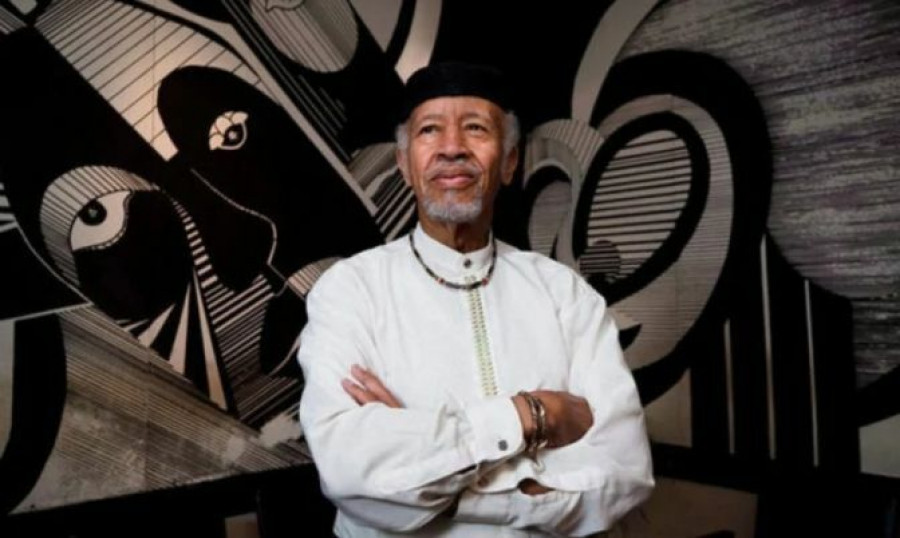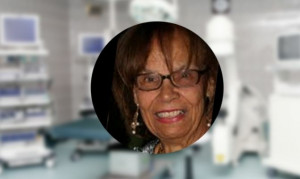To wit: In the 1980s, Roach and others came up with a legal challenge to try to stop the South African ambassador from participating in a debate at the University of Toronto.
Human rights lawyer and activist Charles Roach, who died in 2012, will be honoured by the City of Toronto Wednesday with a laneway in his name.
The ambassador was “going around Canada trying to defend apartheid from people who were campaigning for divestment from South Africa,” recalls lawyer Peter Rosenthal, involved in many of Roach’s fights for human and civil rights.
Roach argued on behalf of four professors that the ambassador was a representative of the country and its policy of apartheid, and was thus a criminal according to international law, a voice of hate who should not be allowed to speak. It didn’t go over well with free speech advocates or the court. He lost, but had made a very public point.
“Of course, the courts didn’t react positively to that and there was a lot of attack from the press,” says Rosenthal. “But on the other hand, in my view and in Charley’s view, it helped to spread word about the fact that it really was a criminal operation, the South African government.”
On Wednesday evening, not far from the law office that was shuttered shortly after Roach’s death at age 79 in 2012, the city of Toronto will unveil “Charley Roach Lane” — a single lane, east-west ribbon of road tucked immediately north of St. Clair, between Rushton Rd. and Arlington Ave. — in honour of his life and work.
“I think it’s important because it’s near where many people came to get help from Charley,” said Rosenthal, who worked out of the office as well. “The office there was very important for helping a lot of individuals with their problems, but also a very large number of fights for social justice were launched and aided from that office.”
Rosenthal and Ward 21 city councillor Joe Mihevic, who represents the area, made the laneway honour happen. The two are scheduled to speak at the unveiling, which begins at 7 p.m.. Also expected to speak are social justice warriors Lennox Farrell and Zanana Akande, as as well as Toronto Caribbean Carnival CEO Denise Herrera Jackson and Sunset Roach, Roach’s daughter, an elementary school teacher with the Toronto District School Board.
“I am just blown over, it’s great,” Roach says of her father’s laneway honour. It comes during a spike in gun violence in a city he deeply cared about, notes Roach. “I think if my dad was around he’d be very much concerned and involved and searching for solutions to this rash of violence,” she says. “When I think back to my mom and dad, they were very optimistic people.”
Roach, a poet, painter and musician, was a founding member of Caribana and one of four founders, including Farrell, of the Black Action Defence Committee, created in the 80s in response to police killings of Black citizens, and a big reason why Ontario has the civilian-led Special Investigations Unit. His was a voice that commanded attention and inspired others.
He immigrated to Canada in 1955 from Trinidad and Tobago, with his first wife, Hetty, who died in 1999. Originally, he thought he’d be a priest but, inspired by the civil rights movement, he turned to law. Much of his legal work was pro bono, “helping marginalized people with a huge variety of problems and furthering fights for social justice,” says Rosenthal.
In addition to working to improve the lives of Black and other Canadians, Roach took up the causes of refugees and migrant workers, and, from 1998 to 2005, worked abroad as a defence counsel at the International Criminal Tribunal for Rwanda.
In the years before his death from brain cancer, Charley Roach’s last great battle was a continuation of a fight he began in 1988, to gain Canadian citizenship without having to make an oath to the Queen. He died without becoming a citizen, but, like the Queen, will now have his name on a Canadian road, albeit a one-lane laneway.
“I think Charley should have more than a laneway, in my view,” says Rosenthal, laughing. “He should have a big boulevard. But a laneway’s a nice commemoration of Charley and I hope it will inspire other people to try and follow in his footsteps.”
This article originally appeared in The Toronto Star. Jim Rankin is a reporter and feature writer based in Toronto. Follow him on Twitter: @Jleerankin

 By
By 





